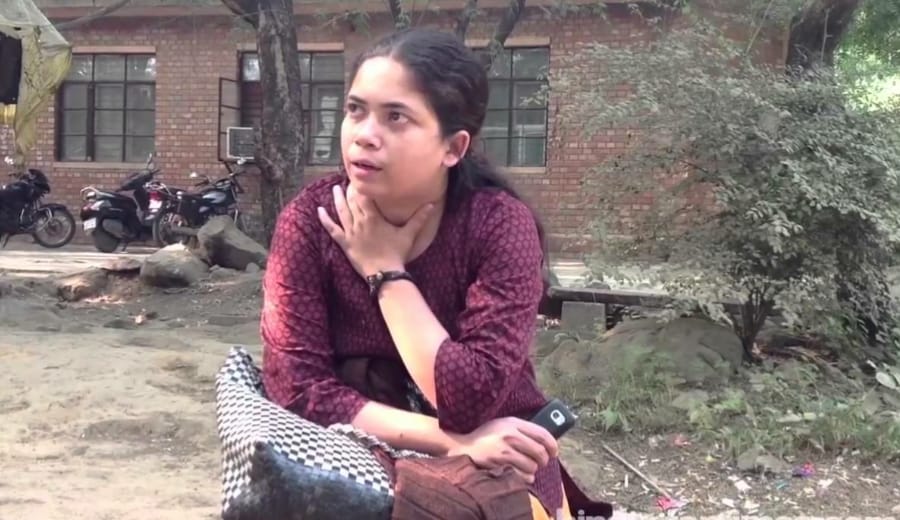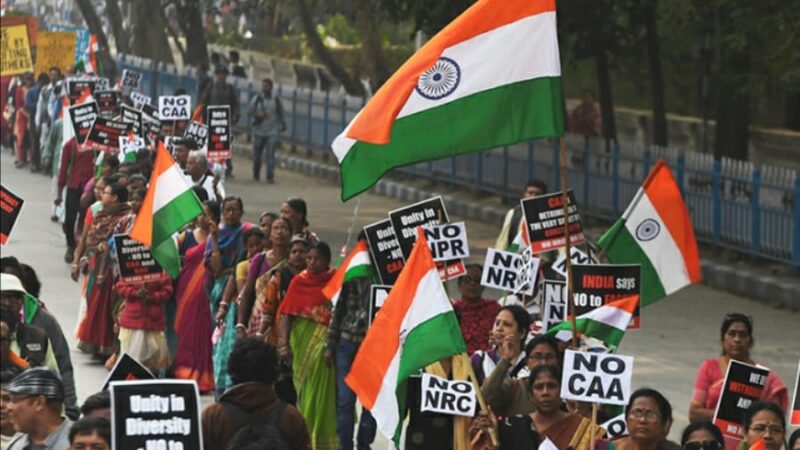Meet the Former President of JNU Students Union- Sucheta De

Sucheta De is the former President of JNU Students Union from AISA (All India Students Association). During her term, she has worked on admission policy and its biasness, improper marking in viva voice, gender sensitization in academics, free and active press for JNU and construction of hostels. She is woman of rationality, who believes in finding logics and reasons and also an inspiration to many who deny to idolize one single individual. A staunch believer in collective work, she incessantly works for emancipation of woman and labor from the atrocities they have to face due to patriarchal setup and favoritism towards a particular caste and race.
1. How do you look at gender sensitivity, woman empowerment and equality for woman? For me gender sensitivity will be like, if we want to change our society we must understand that every individual has a right to attain equal opportunity. This is however not absolutely adopted in our society. Who will be provided with what opportunity and who is to be dignified and to what level, this is decided by few parameters: whether you are a male or a female, what is your caste religion and along with it in what family you are born? This is totally wrong and unacceptable. I believe the fight for gender justice, equality and empowerment are all connected to the fight for emancipation of society from the stereotypical mindset of creating distinct line between men and women.
2. How does Socialism act as a catalyst for gender equality and contributes to a better society? Socialism I think is the only philosophy/ ideology till date which recognises the inequalities, their basis and a very important fact that these things are not natural. These (partial attitudes and trends) are created by human.
3. Socialism is restricting to one ideology, one set of rules but Democracy gives voice to everyone and everything. Do you still believe it is better to follow one ideology or convert it to voice for all (democracy)? There is no denying the fact that one has the right to keep their ideology and it is accepted also but is everyone doing it? Actually how many do it? If everyone would have voiced their opinions, the things would have been different. If in Muzaffar Nagar, some people think a particular caste must not live. If at all, it was just a thought it would have been different but they killed people, murdered children with machines! So saying democracy must not be just for the sake of it. We do have democracy in a defined manner in our country but don’t blindfold your eyes to the things that happen like an entire system will work for few people’s benefit. Then it is not just restricting someone from believing their ideology but it is preventing one from their right and in a larger picture from LIFE. This is not democracy. Any true democracy in incomplete without socialism and any other model, even if anyone claims it to be democracy, and then it is not. No matter what anyone says.
4. People’s movement is striving hard to bring change and they are even successful in some places. How do you see their emergence and role? People’s movements are a way to show some things, some issues and some material reasons. These movements are very significant due to their spontaneous nature. The agitation against corruption, people came out on streets. What is the reason for it? The realization among people, the need for education, information and acceptance that it is not for all but trapped in the hands of few. The most amazing part of these movements is that they just don’t cherry pick but they blame in totality, understand the problem and the corrupt representation by the political forces.
5. What are the complexities of being a Woman politician? What all did you face? I am fortunate to be in JNU and it is very important to acknowledge the fact that women who are out of these boundaries are facing more problems. Woman activist are admired here. But in spite of this there are problems. When I joined politics slander campaigns happened against the woman politicians criticizing them by alleging that they hang around in boy’s hostel and spooky things assassinating their character. In a holistic view, woman when enters politics, if we take some examples of established female politician like Mamta Banerjee, Sheila Dixit, Jayalalita or Mayawati. They are being extremely exploited and hated in the name of politics. We have to start considering them as politicians not woman. They are favorites for the misogynistic comments for instance once someone commented on how Mayawati looks.
6. What is the need for legalizing marital rape? How will this improve the situation? It is important to recognize that a woman must have autonomy over her decision and body like anyone else. This recognition challenges the logic that we are brought up in the stereotypes of glorifying family and marital uncongenial sex which raises the question, if in a family a woman doesn’t have the right then love, affection, care and concern in a relation which is based on certain conditions, is farce in the name of relations. Once woman is married she sacrifices herself entirely for the family which creates a sense for considering marriage as the biggest issue in one’s life because one knows what all will ‘being married ‘ means and asks for. After someone recognizes the marital rape they talk for the autonomy to woman. Hence the entire controversy of control over sexuality will be revealed and therefore, I think the marital rape is not recognized.
7. Don’t you think mishappening in a particular geographical place catches more attention because rape, molestation these things are not place biased. We live in an individualized and self centric society. “Think of one’s own self”, the ideology of selfishness. I understand how biased it is that only certain places get attention and others are left. But understand if even after 16 December the protest wouldn’t have happened, we would have never raised these questions. So what is important is things come to light and this is positive.
8. “India ranks 101 out of 136 in gender gap”. India observes the maximum mortality rate between the age group of 15- 19 in woman basically due to child marriage. How do you think child marriage as a option is leeched out from people’s mindset? We don’t have a single way to it. Asserting the fact that woman is no property owned by anyone, she is a capable individual and no one needs to take her responsibility. As she is no burden.
9. A country where we still need celebrity ambassadors to draw people s attention towards sanitation for woman. How does politics deal with it? This is attached to a lot of things like in our country value of life is low and on the top of it you are a female it is further reduced. If some poor caught a fatal disease they don’t have any option but to die. It is essential to understand that they have right to life and sanitation and it is the basic necessity for the same.
10. Your say on legalization of prostitution. There is no simple Yes or No as an answer to it. First we need to understand what is prostitution. Prostitution is not multiple sexual partners of woman or man for sexual satisfaction. For me it is a culmination of such a system where your exploitation is not just limited to work but your body, while treating it like a commodity. When it is used to satisfy someone else desire, it is a huge form of exploitation. I believe in an equal society this will not prevail. If it is by will then it’s different but this generally doesn’t happen. So, prostitution exist in our society and we can’t blindfold our eyes because this will be hypocrisy as we are running a state where prostitution occurs and we still don’t accept the fact and criminalize it when fight for exploitation free society is going along, we must at least have their recognition. When they are raped they are proven culprits, which is not right. One must recognize their exploitation and thus they must be given the status of workers and then we must fight against it. Only then can we expect them also to fight for their wages and sexual autonomy.
———— About the Author: This interview is conducted by Snigdha Jindal, our Guest Writer. Snigdha is a student of development communication in AJK MCRC Jamia Millia Islamia. She constantly wishes to put her effort in understanding and improving the problems of Women at the root level via writing, photography or any other medium which incites the general interest.






